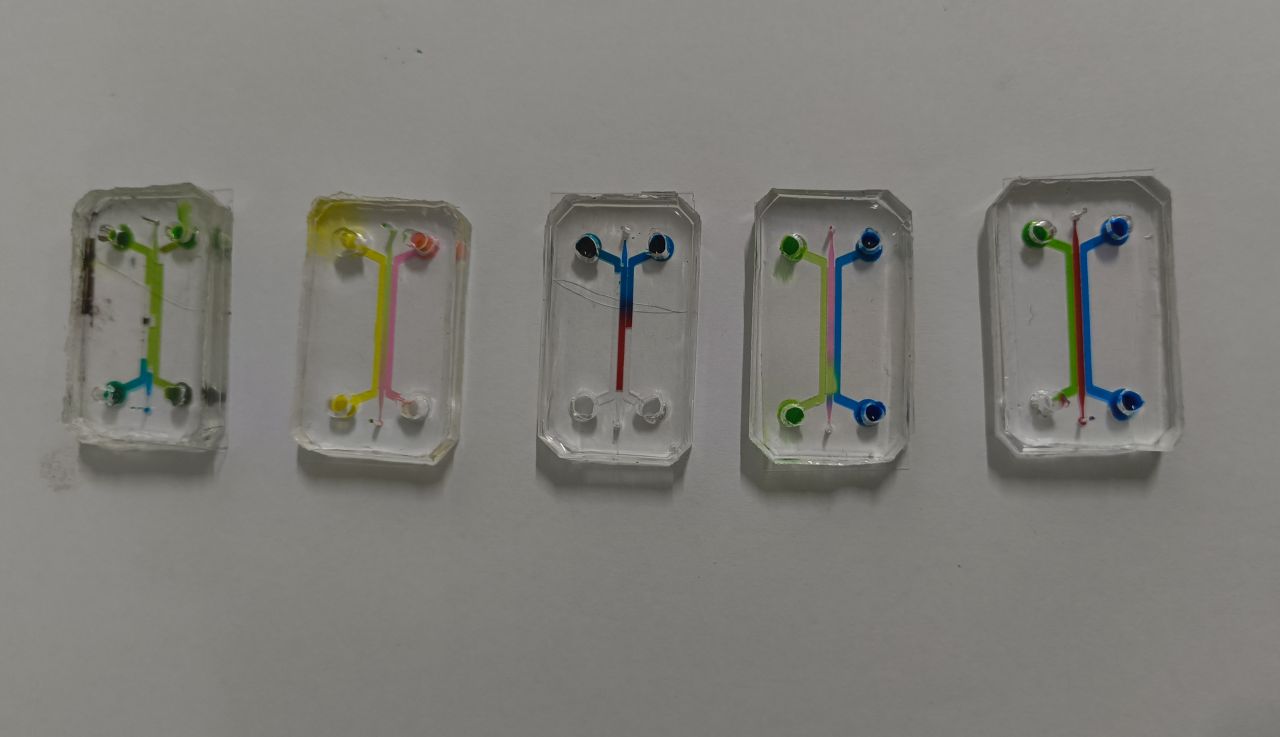The following courses are taught by us. Below are the short description and syllabus of the course contets. Kindly enrol in the respective semester for the course.
 BM 5123 Credits:2.0 Organ-on-chip
BM 5123 Credits:2.0 Organ-on-chipSYLLABUS
• Spheroids, organoids as Non-animal methods (NAMs)
• Micro-physiological systems (MPS) especially for cancer, toxicology
• MPS systems for vascular channels, cancer models, liver
• Lab component: 3D printed mold based microfluidics
Organ-on-chips (OOC) are complex, multi-cellular in vitro systems including 3D organoids, fluid flow, changing pressure or stretch, and multi-organ interactions. These systems are being developed to better mimic some aspects of specific organ systems or combinations of organ systems to improve upon 2D cell culture systems.
SYLLABUS
• Cell structure, organelles and homeostasis
• Nucleus structure and function of its different components
• Respiratory: anatomy, gas exchange, acid-base balance
• Renal: anatomy, ion exchange, transport of metabolites
• Gastro-intestinal tract: anatomy, absorption of micro-nutrients, dysfunction
• Cutaneous system: anatomy, temperature regulation
• Endocrine: basic function, major endocrine organs and their regulation, bone physiology
This course is intended for basic understanding of human physiology in the engineers’ perspective. The students need to understand different physiological systems; and their dysfunction by applying engineering and mathematics knowledge. The important systems which may be covered are respiratory, renal, endocrine, gastro-intestinal tract, cutaneous, and other relevant systems.
SYLLABUS
Tissue engineering: fundamentals and current status; Stem cells: embryonic and mesenchymal stem cells;
cell differentiation; Extra-cellular matrix components and their regulation of cell behavior;
In vitro and in vivo testing of biomaterials. Bioreactor; Cell migration; Growth factors;
Different approaches for angiogenesis and its importance.
The students will learn how to test the biomaterials along with a number of cell types in vitro and in vivo. He should learn how the physiological cues are combined together with biomaterials for regenerative medicine point of view.
SYLLABUS
Tissue-specific regenerative medicine: Bone, cartilage. Regulation and ethics of tissue engineering. Advanced methods applied in regenerative medicine field.
The students will learn in a seminar-based manner about a number of tissue-specific regenerative medicine and various approaches to achieve this.
SYLLABUS
To test for tissue engineered constructs
• DNA, RNA isolation
• PCR reaction
• Western blotting
• Immunohistochemistry
• Cytoskeleton staining
This course is intended for practical handling experience for students for molecular biology techniques such as DNA isolation, RNA isolation, polymerase chain reaction, and transfection. They should also learn basic molecular biology methods and their interpretation with respect to cell culturing techniques. Prior knowledge of mammalian cell culture is mandatory for this course.
SYLLABUS
• Cell culture, splitting
• Cell freezing and thawing
• Identification of cells in blood smear
Right fig: Mesenchymal stem cells in culture
This course is intended for practical handling experience for students for culture of mammalian cells. They should learn detailed step-wise protocols in culturing, freezing, splitting of mammalian cells. In addition, they should be able to see the cells found in blood.